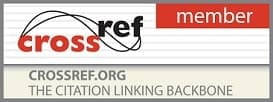International Journal of Homoeopathic Sciences
2020, Vol. 4 Issue 1, Part B
Homoeopathic management of hyperuricemia in primary gout: A randomized single blind placebo controlled study
Author(s): Dr. Aman Deep and Dr. Anupam Kumar
Abstract:
Gout is a disorder of purine metabolism. Hyperuricemia alone is one of the most common risk factor for development of gout. Clinically gout is characterized by pain and swelling of joints, especially 1st metatarsal joint. Due to adverse drug reactions of modern medicines, there was a need to explore the role of homoeopathic medicines in management of hyperuricemia in primary gout. So, a prospective, randomized, single- blind placebo controlled study was conducted with an objective to evaluate improvement in the serum uric acid (SUA) level and visual analogous scale (VAS) score of pain. The experimental group received the indicated homoeopathic medicine while control group received identical placebo. Patients of both groups were assessed for SUA and VAS score from baseline to end of every three months. Ninety one patients were analyzed at the end of study. In medicinal group, serum uric acid was reduced to 4.96 ±1.99 from 8.61±.69 with mean reduction of 3.66 ± 2.10 and reduction of VAS score was 1.65± 1.87 from 7.1±.83, with mean reduction of 5.46 ± 2. 00. In placebo group serum uric acid was reduced to 7.60 ±.86 from 8.1± 69 with mean reduction of .51±.81 with VAS score reduction to 5.47±1.44 from 6.60 ±.98 with mean reduction of 1.14 ± 1.49. As per result, mean score reduction in medicinal group was higher than placebo, and the difference was also statistically significant. (p<.0001). The result of this study justifies the effectiveness of homoeopathic medicines in management of hyperuricemia in primary gout.
Gout is a disorder of purine metabolism. Hyperuricemia alone is one of the most common risk factor for development of gout. Clinically gout is characterized by pain and swelling of joints, especially 1st metatarsal joint. Due to adverse drug reactions of modern medicines, there was a need to explore the role of homoeopathic medicines in management of hyperuricemia in primary gout. So, a prospective, randomized, single- blind placebo controlled study was conducted with an objective to evaluate improvement in the serum uric acid (SUA) level and visual analogous scale (VAS) score of pain. The experimental group received the indicated homoeopathic medicine while control group received identical placebo. Patients of both groups were assessed for SUA and VAS score from baseline to end of every three months. Ninety one patients were analyzed at the end of study. In medicinal group, serum uric acid was reduced to 4.96 ±1.99 from 8.61±.69 with mean reduction of 3.66 ± 2.10 and reduction of VAS score was 1.65± 1.87 from 7.1±.83, with mean reduction of 5.46 ± 2. 00. In placebo group serum uric acid was reduced to 7.60 ±.86 from 8.1± 69 with mean reduction of .51±.81 with VAS score reduction to 5.47±1.44 from 6.60 ±.98 with mean reduction of 1.14 ± 1.49. As per result, mean score reduction in medicinal group was higher than placebo, and the difference was also statistically significant. (p<.0001). The result of this study justifies the effectiveness of homoeopathic medicines in management of hyperuricemia in primary gout.
Pages: 73-77 | 3428 Views 2309 Downloads

How to cite this article:
Dr. Aman Deep, Dr. Anupam Kumar. Homoeopathic management of hyperuricemia in primary gout: A randomized single blind placebo controlled study. Int J Hom Sci 2020;4(1):73-77. DOI: 10.33545/26164485.2020.v4.i1b.129







